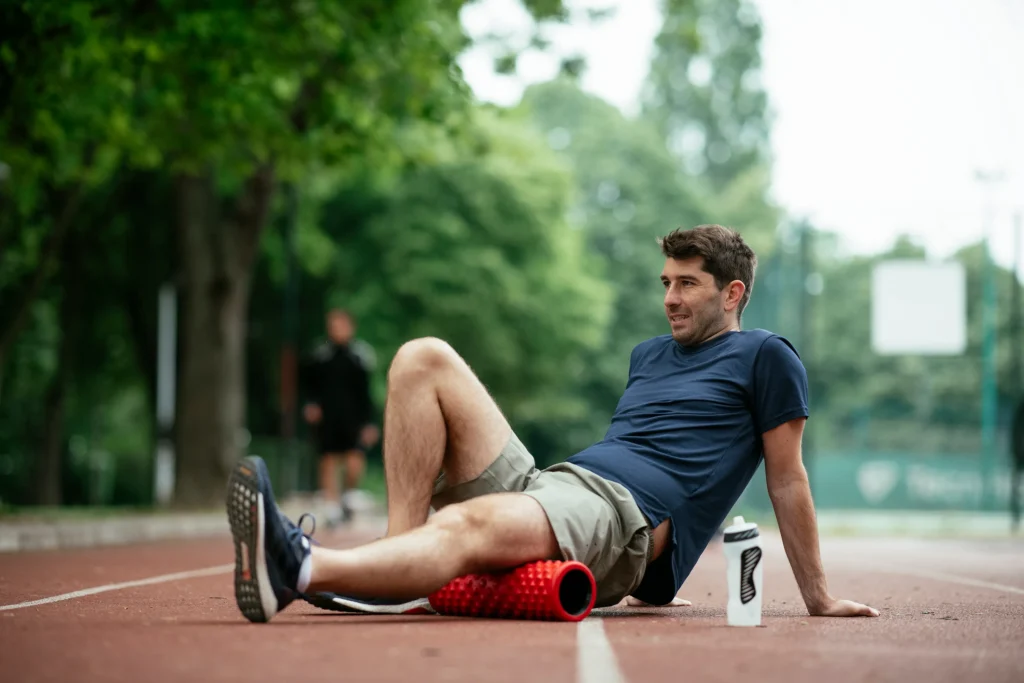
Entering your thirties brings a wealth of experience and wisdom, but it also presents new challenges for building and maintaining muscle mass. The challenge of gaining muscle after 30 is real: our metabolism slows down, recovery takes longer, and old training routines might not be as effective. In this article, we explore tailored strategies specifically for those over 30, blending fitness and lifestyle adjustments to maximize muscle growth. Whether your goal is to transform your body or maintain strength amid a busy schedule, the practical advice provided here will help you overcome time constraints, reduce injury risk, and build lean, sustainable muscle mass.
Understanding Muscle Gain After 30
The journey to muscle gain after 30 is influenced by unique factors such as hormonal shifts, joint wear, and a naturally slowing metabolism. However, with a well-informed approach adapted to these changes, significant improvements are within reach. In this section, we examine how the biological and physiological changes in our bodies impact muscle building, proving that knowledge is power when adjusting your fitness routine beyond your thirties.
A major challenge for those over 30 is the reduction in anabolic hormones like testosterone and growth hormone, which can lead to slower muscle synthesis. Smart training regimens paired with proper nutritional strategies can help counterbalance these effects. Consistent, gradual resistance training—combined with adequate recovery and proper nutrition—stimulates muscle protein synthesis effectively.
Additionally, lifestyle factors such as stress management and quality sleep play a crucial role in muscle recovery and growth. Adopting practical and sustainable habits enables you to overcome the hurdles of muscle building after 30, making a holistic approach that covers physical, nutritional, and mental well-being essential.
Nutrition Strategies for Over-30 Lifestyles
Optimizing your diet is a cornerstone in the journey of muscle gain after 30. A balanced diet rich in proteins, complex carbohydrates, and healthy fats provides the fundamental building blocks for muscle repair and growth. Fueling your body correctly is essential for reaching your fitness goals.
After 30, changes in digestion and nutrient absorption make it even more important to focus on nutrient-dense foods. Emphasizing anti-inflammatory foods, lean proteins, and omega-3 fatty acids can support energy levels and recovery. Including a variety of fresh vegetables, fruits, and whole grains in your meals keeps your metabolism robust and efficient.
Practical tips include tracking your macronutrient intake and ensuring approximately 1.2-1.8 grams of protein per kilogram of body weight daily. Spacing meals evenly throughout the day and timing your nutrient intake around workouts can further aid muscle recovery. For more detailed nutritional guidance, visit reputable resources like Nutrition.org and Healthline.

Protein Power: The Building Block
Focusing on high-quality proteins—whether from lean meats, dairy, or plant-based options—boosts muscle repair after workouts. Post-workout protein shakes offer a quick and effective way to initiate muscle protein synthesis.
Integrating natural protein sources into your meals not only promotes muscle growth but also helps maintain balanced nutrition for overall vitality.
Carbohydrates & Fats: Balancing Energy
Carbohydrates serve as the main fuel during workouts, while healthy fats aid in hormone production and sustained energy. Balancing these macronutrients creates an ideal environment for recovery.
Studies indicate that individuals over 30 benefit from low glycemic index foods and omega-3 rich sources to decrease inflammation and support efficient muscle repair.
Effective Training Routines for Mature Muscles
Adapting your training routine to suit an over-30 lifestyle means moving from high-intensity workouts to focused resistance training that emphasizes proper form and gradual overload. Precision in training is key to unlocking muscle growth at this stage of life.
Traditional weightlifting routines may need to be adjusted to protect your joints against inevitable wear and tear. Consider low-impact, efficient routines that incorporate compound movements—such as squats, deadlifts, and bench presses—tailored to your capabilities. Incorporating warm-ups and stretching routines is crucial to reducing the risk of injury.

In addition, integrating recovery days and a periodized training plan is vital. This approach not only supports muscle repair but also helps prevent overtraining. For more insights, check out reputable fitness communities like Bodybuilding.com and ACE Fitness, which offer workshops and studies tailored for mature athletes.
Lifestyle Adjustments and Recovery Techniques
Building muscle isn’t only about lifting weights and eating right—your overall lifestyle plays an influential role. After 30, recovery becomes as important as the workout itself. Adequate sleep, hydration, and stress management are vital for seeing real gains. The synergy between training and recovery is essential.
Modern studies emphasize that quality sleep is directly linked with favorable hormone regulation for muscle growth. Ensuring 7-9 hours of sleep every night can significantly boost your physical performance. Managing stress through activities like meditation or pursuing a calming hobby also helps keep your body in a state ready for recovery.
Using innovative recovery techniques such as foam rolling, massage therapy, and even occasional active recovery sessions can prevent injuries and improve flexibility. Incorporate these practices into your weekly schedule to maximize results. Trusted sources like Sleep Foundation and Mayo Clinic offer further advice on optimizing recovery.

Advanced Recovery Methods
Innovative techniques like contrast baths and cryotherapy are gaining popularity for reducing muscle soreness and inflammation. These methods are particularly beneficial after intense workouts.
Regularly incorporating these strategies into your routine can lead to faster recovery times and fewer muscle aches.
Daily Lifestyle Tips
Simple daily habits—such as staying properly hydrated and establishing a consistent sleep routine—can dramatically improve recovery outcomes. Consistency in daily habits is often the secret behind effective muscle gain.
Additionally, engaging in light activities like walking or yoga on rest days keeps your body active and aids in recovery without causing undue stress.
Mindset and Motivation: Building a Sustainable Routine
Beyond the physical aspects of muscle gain lies the mental strength needed to maintain long-term progress. A positive mindset and clear, achievable goals are just as important as any workout, especially for those balancing the demands of an over-30 lifestyle.
Building muscle later in life is less about quick fixes and more about viewing fitness as a lifelong marathon. Patience, regularity, and self-compassion are key. Enhancing motivation by setting realistic benchmarks, tracking small improvements, and celebrating every success makes the journey more enjoyable.
Engaging with supportive communities—online or in person—can further boost your commitment. Fitness forums, local classes, and social media groups connect you with others who face similar challenges and celebrate similar victories. For ongoing inspiration, explore platforms like Verywell Fit and Men’s Health.

Setting Realistic Goals
The first step for long-term muscle building after 30 is to define what success looks like for you. Whether you aim to increase strength or improve overall endurance, tailor your goals to fit your lifestyle.
Break down larger objectives into smaller, manageable milestones that keep you motivated and allow you to clearly track your progress.
Building a Support System
Having a strong network can make all the difference. Sharing your journey with others provides both accountability and encouragement.
Consider joining group training sessions or online communities where shared stories of consistent effort and eventual success push you to keep moving forward.
Content Additional
To further enrich your muscle gain journey, explore additional resources and emerging practices that align with today’s lifestyle trends. With ongoing technological breakthroughs, from innovative training methods and wearable fitness trackers to personalized nutrition apps, the over-30 fitness enthusiast has more tools than ever to optimize performance and monitor progress. Staying current with emerging trends can give you an extra edge in your training regimen.
Recent studies highlight the importance of incorporating mindfulness practices and using digital apps to track sleep quality and overall wellness. Analyzing data from these technologies helps you fine-tune both your workout and recovery schedules, ensuring consistent progress while addressing early signs of overtraining or nutritional imbalances.
Additionally, participating in community-driven events, workshops, or webinars led by reputable fitness experts can offer fresh insights and practical tips for building muscle after 30. These events, often organized through platforms like Eventbrite or hosted by local fitness centers, provide masterclasses designed specifically for mature athletes.
Gaining muscle after 30 might require a change in approach, but it is absolutely achievable with the right balance of nutritional support, targeted training, and lifestyle adjustments. Embracing a holistic strategy that addresses both physical and mental aspects of fitness can help you establish a sustainable routine, boosting strength, resilience, and overall well-being. Remember, every step forward counts, and coupling determination with smart recovery techniques will reveal the muscle gain secrets essential for a thriving lifestyle beyond 30.